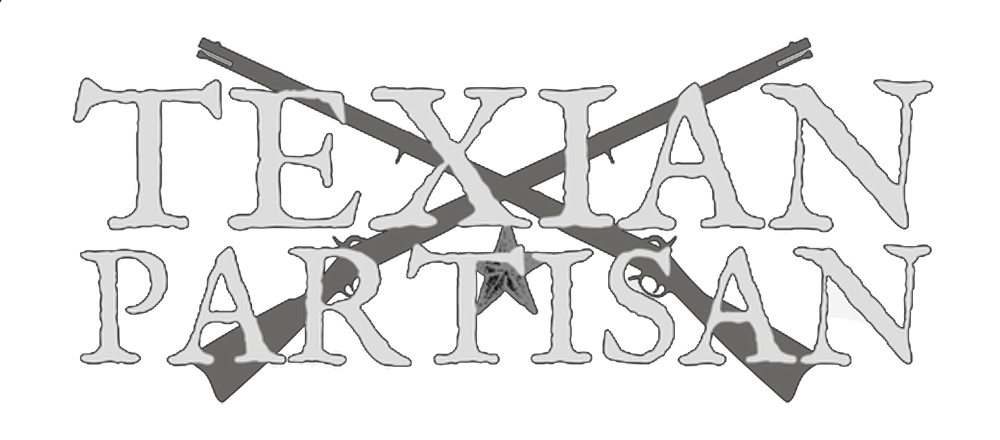In this third installment of our “Winning the Texit Debate” series, we’ll focus on the economic arguments for Texas independence. These approaches effectively counter one of the most common objections to Texit: the myth that Texas couldn’t economically survive outside the union.
Master these logical frameworks, and you’ll transform what opponents think is their strongest argument into one of their greatest weaknesses.
The Economic Double Standard
When opponents claim Texas couldn’t survive economically on its own, deploy this powerful challenge: “Texas’s economy is already larger than that of many independent countries – it ranks in the top 8 globally, ahead of nations like Canada and Russia. So how can anyone claim Texas couldn’t make it on its own?”
Follow up by asking: “Are you suggesting that countries smaller than Texas – from Switzerland to South Korea – aren’t actually viable? Or that Texans uniquely lack the ability to govern themselves economically despite running an economy of this magnitude?”
This approach exposes a glaring inconsistency. By pointing out that Texas’s GDP outstrips numerous successful nations, you force the opponent to either imply those countries shouldn’t exist (a ridiculous notion) or that Texans are somehow uniquely incapable despite their proven economic prowess (an insulting claim).
The power of this argument lies in its use of concrete facts rather than speculation. Texas isn’t hoping to become economically viable – it already is. With a GDP of approximately $1.9 trillion, Texas would immediately enter the ranks of the world’s wealthiest nations upon independence.
The Fiscal Fairness Flip
When opponents argue that Texas would lose critical federal funding, turn the tables with this approach: “Isn’t it true that Texas sends more money to Washington than it gets back? If Texas is a net contributor – effectively subsidizing other states – how do you argue that Texas ‘needs’ the federal funds to survive?”
Add the clinching point: “In fact, doesn’t that mean the rest of the U.S. is more dependent on Texas’s tax dollars than Texas is on federal aid? It sounds like the usual narrative has it backwards: who exactly is dependent on whom?”
This trap turns the economic dependency argument on its head. Opponents often claim Texas couldn’t financially cope alone, but here they’re confronted with evidence that Texans pay more into the federal system than they receive. By highlighting that Texas’s departure would hurt the federal purse more than it would hurt Texas, you undermine the argument that staying is purely for Texas’s benefit.
The math is straightforward: Texas annually sends approximately $265 billion to Washington through various taxes but receives only about $162 billion back in federal spending. This net overpayment of over $100 billion annually is money that would remain in Texas after independence – funds that could be used to address Texas priorities rather than those of politicians in Washington.
The Federal Burden Relief
Build on the previous approach by highlighting the hidden economic benefits of independence: “Have you considered the economic burden placed on Texas by federal regulations? Texas businesses currently operate under approximately 180,000 pages of federal regulations administered by 440 different federal agencies.”
Continue with: “Studies from the Mercatus Center show that federal regulations have a disproportionate impact on Texas industries – 29 percent higher than the national average. What would happen to the Texas economy if these regulatory burdens were removed?”
This approach focuses on the unseen costs of remaining in the union. By highlighting how federal regulations specifically target and harm Texas industries, you’re showing that independence would bring economic benefits that go beyond simply keeping tax dollars at home. The removal of these regulatory burdens could unleash unprecedented economic growth.
According to economic studies, the growth of federal regulations over the past six decades has reduced economic growth by approximately 2 percentage points per year. Removing these burdens could potentially quadruple the take-home pay of the average Texan over time – a benefit that opponents of Texit don’t want Texans to consider.
The Resource Control Argument
When the discussion turns to natural resources, employ this decisive approach: “Texas is blessed with abundant natural resources – including the largest proven oil reserves in the United States. Currently, federal regulations restrict Texas’s ability to fully utilize these resources. How would Texas’s economic position change if it had complete control over its own resources?”
This approach highlights another hidden economic benefit of independence. Texas is rich in natural resources – beyond oil and gas, Texas has vast renewable energy potential, water resources, and agricultural land. Federal restrictions on resource development cost Texas billions in potential economic activity each year.
As an independent nation, Texas would be able to set its own resource development policies, balancing environmental concerns with economic needs in a way that makes sense for Texans, not for politicians in Washington. This control would translate into increased economic growth, jobs, and prosperity.
The Currency and Banking Control
For more advanced economic discussions, introduce this framework: “Under the current system, Texas has no control over monetary policy – that’s decided by unelected officials at the Federal Reserve. What would be the economic advantage of Texas having control over its own currency and monetary policy?”
This approach highlights one of the most underappreciated benefits of independence: monetary sovereignty. Currently, decisions about interest rates, money supply, and inflation targets are made by the Federal Reserve with little regard for Texas’s specific economic needs. An independent Texas could establish a currency and monetary policy tailored to its unique economic circumstances.
There are multiple options an independent Texas could pursue: maintaining use of the U.S. dollar (as many countries around the world already do), establishing a Texas dollar backed by the state’s substantial gold reserves, or even pioneering new approaches to sound money. The key point is that these decisions would be made by Texans, for Texans.
Strategic Applications
These economic approaches are most effective when tailored to specific audiences:
- With fiscal conservatives: Emphasize the $100+ billion annual overpayment to the federal government and how that money could be better used in Texas – potentially eliminating property taxes while maintaining all current services.
- With business owners: Focus on the regulatory burden imposed by federal agencies and how removing these restrictions would unleash economic growth and entrepreneurship.
- With working families: Highlight studies showing that federal regulations have significantly reduced wages and that independence could lead to substantial increases in take-home pay for the average Texan.
- With international trade advocates: Point out that Texas is already a global export leader and that independence would allow Texas to negotiate trade deals that prioritize Texas industries rather than being subject to one-size-fits-all federal trade policies.
Countering Common Objections
Anticipate these common counterarguments and prepare your responses:
“Texas would lose access to federal funds for infrastructure, education, etc.”
Response: “Texas currently receives back less than 62 cents for every dollar it sends to Washington. Even accounting for every penny of federal spending in Texas, independence would leave Texas with a net surplus of over $100 billion annually – more than enough to fund these priorities without federal interference.”
“Texas would face trade barriers with the rest of the United States.”
Response: “The United States already has free trade agreements with 20 countries – many with economies smaller than Texas. There’s no economic reason the U.S. wouldn’t establish a similar agreement with an independent Texas, especially considering the integrated nature of our economies and the tremendous harm trade barriers would cause to both parties.”
“What about Social Security and other federal benefits?”
Response: “The obligation to pay Social Security benefits belongs to the federal government, not to Texas. Just as Americans living abroad continue to receive their earned benefits, so would Texans after independence. Furthermore, with the additional $100+ billion annually that would remain in Texas, we could establish our own retirement system that would be far more secure than the federal system, which is projected to become insolvent within the next decade.”
The Myth of Economic Disruption
When opponents raise fears about economic disruption, counter with this perspective: “The Brexit vote was supposed to cause economic catastrophe for the United Kingdom, according to opponents. What actually happened? The stock markets reached record highs, retail sales increased, and foreign investment continued to flow in.”
This approach uses real-world examples to counter doom-and-gloom predictions. Like Brexit, Texit would involve a transition period that would be managed responsibly. But the fundamental economic strength of Texas – its productive workforce, abundant resources, and business-friendly climate – would remain unchanged. These fundamentals, combined with the additional benefits of independence, would ensure a smooth transition to a prosperous future.
Economic Liberation
The economic case for Texit is not about surviving outside the union – it’s about thriving. By removing the fiscal drain, regulatory burden, and monetary constraints imposed by the federal system, an independent Texas would be positioned for unprecedented economic growth.
Remember, you don’t need to win every point in every debate. Sometimes success means simply getting an opponent to acknowledge that Texas is not economically dependent on the federal government – quite the opposite. Even small shifts in perspective can eventually lead to greater openness to the Texit cause.
In our next article in this series, we’ll explore the identity and autonomy arguments for Texas independence – examining how Texas’s unique culture and character provide another powerful justification for self-governance.
Until then, recall that when opponents claim Texas can’t afford independence, the reality is that Texas can’t afford to remain in a union that drains its resources, stifles its economy, and prevents Texans from reaching their full economic potential.



Re: The Fiscal Fairness Flip-
I think the first obvious point to make is to explain that there is no such thing as “federal money.” All that money originally came from TEXAS and is only being returned minus what we pay bureaucrats who tell us how we then must spend it. Why send it in the first place?